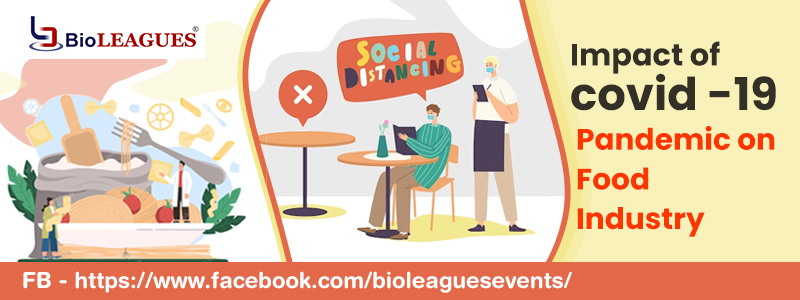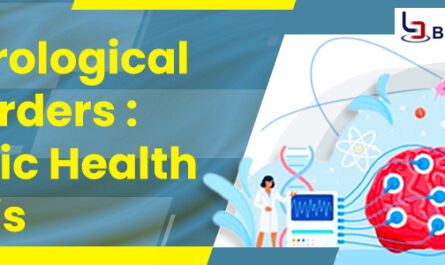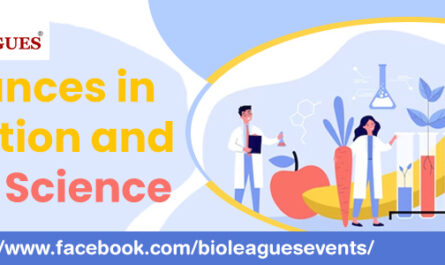Impact of covid -19 Pandemic on Food Industry has the immense loss of life worldwide. It also presents an unusual obstacle to public health, food systems, and the world of work. The economic and social disorder created by the pandemic is overwhelming even as millions of people are at risk . While the number of undernourished people, currently valued at nearly seven hundred million. It could be increase by as much as two hundred million by the end of the year.
Closure Of Businesses
Millions of businesses face existential threats. Almost half of the world’s three and a half billion workers are at risk of losing their livelihoods. Workers in unstable economy have been significantly hit as the majority need some social protection. It can access to high-level health care and have forgone access to productive assets. For the most part, no income means no food or, at best, less food and less nutritious food. The forthcoming Public Health Events are sure to offer more info.
Impacts On The Global Food Supply Chain
COVID-19 has had an adverse influence on the entire food system and exposed its fragility. Containment measures have prevented farmers from accessing markets. Especially to buy inputs and sell their produce, and farm workers from harvesting their crops, disrupting food supply chains. National and international markets and reducing access to healthy, safe, and diverse food. The pandemic has decimated jobs and endangered millions of livelihoods. As breadwinners lose their jobs, fall ill, and die, the Food Security and Nutrition of millions of women and men are threatened. Those in low-income countries, especially the most marginalized populations.
Adverse Effects On The Agriculture Industry & Economy
Millions of salaried and self-employed agricultural workers, while feeding the rest of the globe, routinely suffer from poverty, starvation, and ill-health. They also suffer from a lack of safety and protection at work, along with other types of abuse. When it comes to low and irregular incomes and a lack of social support, many are pressured to continue working, often in unsafe conditions, putting themselves and their families at additional risk. Also, when they undergo income losses, they may start practicing negative coping strategies, such as distressed asset sales, predatory loans, or child labor.
Migrant agricultural workers are vulnerable, as they are exposed to risks in their transport, working, and living conditions and find it difficult to access the support measures put in place by governments. Ensure the safety and health of all agribusiness workers – from primary producers to those involved in food processing, transportation, and retailing, including street food vendors, will be essential to save lives and protect people’s public health, livelihoods, and food security. Register yourself for the upcoming Nutrition and Covid-19 Meetings to find out more on this topic.
Food Safety & Public Health Crises
In the Impact of covid -19 crisis, food safety, public health, and employment and labor issues, especially worker health and safety, converge. Adhering to occupational safety and health practices and ensuring access to decent work and the protection of workers’ rights in all industries will be essential to address the human dimension of the crisis. Immediate and targeted action to save lives and livelihoods should include extending social protection to universal health coverage and income support for all those who have been most affected.
Considerable attention should be given to the circumstance of women, who are over represented in low-paid jobs and care functions. Varying forms of assistance are essential, including –
- cash transfers,
- children’s allowances,
- healthy school meals,
- shelter and food assistance initiatives,
- support for maintaining and restoring employment, and
- Financial assistance for businesses, including micro, small and medium enterprises.
When designing and implementing these measures, it is essential that governments work closely with employers and workers.
Effect On Emerging & Politically Unstable Nations
Countries facing existing humanitarian crises or emergencies are particularly vulnerable to the effects of COVID-19. A swift response to the pandemic is essential while ensuring that humanitarian assistance. It will recovery reach those who need it most.
The time has came to know about Impact of covid -19 global solidarity and support, especially with the most vulnerable in our societies. It is especially in emerging and developing countries. Only together can we overcome the interrelated health, social and economic impacts of the pandemic. It will prevent from escalating into a protracted humanitarian and food security disaster.
COVID-19 and Food Safety
There is currently absolutely no evidence whatsoever that suggests that food handling or consumption is linked in any way with COVID-19 Food Safety. Coronaviruses, such as the virus that is responsible for causing COVID-19. Covid-19 believed to be spread from one person to another via respiratory droplets when a person sneezes, talks, or coughs. There is a possibility that a person will get infected by Impact of covid –19 if he/she touches a surface or article, including food or food packaging, that contains the virus, and subsequently placing their hands on their mouths, noses, or even eyes. Nevertheless, this isn’t considered to be the primary route for the virus to spread.
Handling of Food
After shopping, handling food packaging, or preparing or eating food, it is crucial to wash hands well with water and soap for a minimum period of twenty seconds. When soap and water are not available, one can use a hand sanitizer containing at least sixty percent alcohol. Covering every portion of one’s hands and rubbing them together until they are dry is important. Making sure to follow good food safety practices to diminish the risk of illness from prevalent food borne pathogens is crucial. Very low risk of contracting COVID-19 from food and packaging or from treated drinking water.
Risk of contracting COVID-19 through the food you cook on your own or through the handling and consumption of food in restaurants and take-out or while driving is considered to be very low. Currently, there is no proof that food is associated with the spread of the virus that causes COVID-19. Register for Upcoming Public Health Conferences to find out more.
Exposure To Food Packaging
The risk of contracting the virus from exposure to food packaging, food bags, and food products is considered to be quite low. To date, no instances of COVID-19 have been identified where infection could have occurred from the touching of shopping bags, food, or food packaging. Despite some people who work in food production and processing facilities having contracted COVID-19. There is no evidence for virus is spread to consumers through food or packaging those workers at these facilities may have handled.
Food Safety In The Kitchen
Use good food safety practices when handling food and before, during, and after preparing or consuming food. It is crucial to safely manage and continue to cook foods is recommended cooking temperature to avoid food borne illness. It is important to rinse and sanitize the kitchen counter with water before preparing food. Do not use disinfectants on food or food packaging. Anyone in your home is sick, clean and sanitizes, “hard touch” surfaces such as handles, kitchen counters faucets, etc daily.




